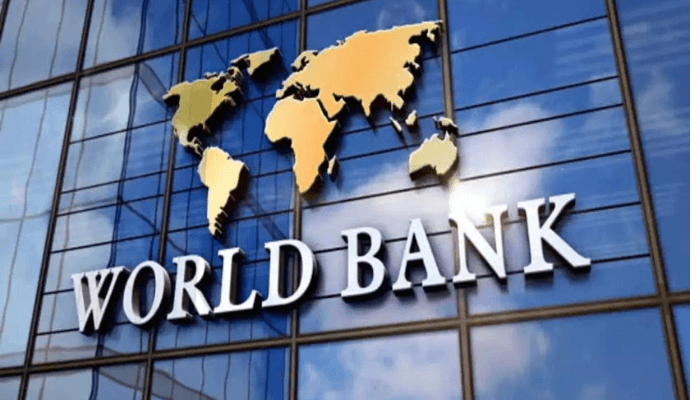General
139m Nigerians Still in Poverty Despite Tinubu’s Reform Gains – World Bank
Published
4 months agoon

The World Bank has praised Nigeria for achieving significant macroeconomic stabilization since mid-2023, but warned that the country’s reform gains have yet to translate into tangible improvements in citizens’ welfare.
In its just released Nigeria Development Update (NDU) report for October 2025, titled “From Policy to People: Bringing the Reform Gains Home,” the Bank highlighted that recent bold reforms, including fuel subsidy removal, exchange rate unification, and enhanced tax administration, have “prevented an outright fiscal crisis” and yielded visible progress.
Read Also:
Growth improving, inflation easing
The report notes that GDP grew by 3.9% year-on-year in the first half of 2025, up from 3.5% in the same period of 2024.
Earlier report by the National Bureau of Statistics (NBS) indicated that the growth was led by services industry, particularly ICT, finance, and real estate, with the oil sector recovering moderately and agriculture showing a small rebound after years of weakness.
Meanwhile, headline inflation, though still high, is slowly moderating. According to the World Bank, the annualized month-on-month inflation rate dropped from 27.6% in April 2025 to 12.9% in August, reflecting tighter monetary policy and lower import pressures.
Similarly, foreign exchange markets have stabilized following the naira unification, with reserves rising to over $42 billion and the parallel market premium effectively eliminated.
Poverty deepens despite reforms
Despite the improvement across the macro-economic fronts, the Bank noted that these gains “have not substantially improved Nigerians’ livelihoods,” the report cautioned.
It revealed that weak growth in labor-intensive sectors and persistently high inflation have sharply eroded household purchasing power.
Data show that between 2019 and 2023, average consumption per capita fell by 6.7%, while poverty rose from 40% with 81 million people to an estimated 61% which now translate to 139 million Nigeria trapped in poverty zone, in 2025.
While admitting that most of this deterioration occurred before 2023, the World Bank noted however that the recovery remains fragile.
The Bank said the “next phase of reform” must focus on people — through sustained disinflation, stronger inclusive growth, and better public services.
It stressed that “macroeconomic stabilisation is necessary but not sufficient. The ultimate test of success is whether Nigerians feel better off.”
Risk of reform fatigue
The NDU warned that reform fatigue and political uncertainty could threaten recent progress, especially ahead of the next election cycles in 2026.
The country may also take hit from external headwinds as the Bank warned that global trade tensions, weaker oil prices, and climate shocks also pose risks to growth and food security.
To consolidate gains, the report urged Nigeria to strengthen monetary policy transmission by relying more on open-market operations rather than high cash reserve ratios, continue improving tax efficiency and transparency, and sustain tight fiscal discipline while channelling spending to growth-enhancing sectors.
Share this:
- Click to share on X (Opens in new window) X
- Click to share on Facebook (Opens in new window) Facebook
- Click to share on WhatsApp (Opens in new window) WhatsApp
- Click to share on Pocket (Opens in new window) Pocket
- Click to share on Telegram (Opens in new window) Telegram
- Click to email a link to a friend (Opens in new window) Email
- Click to share on LinkedIn (Opens in new window) LinkedIn
You may like


World Bank Approves $500m To Expand Finance For MSMEs In Nigeria


Stability Without Relief? 10 Things the World Bank Says About Nigeria’s Reforms


World Bank Approves $300m to Support IDPs in Nigeria


World Bank Maintains Nigeria’s Growth Forecast at 3.6% Despite Global Economic Downgrades


World Bank to Withhold $10.4m Loan to Nigeria over Audit Deficiencies


Nigeria’s Fiscal Deficit Projected to Narrow to 3% of GDP by 2027










